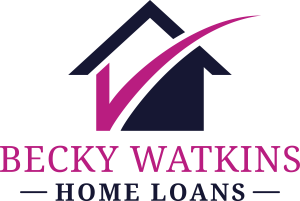
Conventional Loans
Achieve your homeownership dreams with our Conventional Home Loans offering competitive rates and flexible terms. Ideal for first-time homebuyers, families, or individuals seeking traditional home financing.
Why Many Buyers Love Conventional Loans
Better Rates
Conventional loans come with higher limits than other mortgage options, which means that borrowers can finance a higher amount of money.
Preferred by Sellers
Conventional loans need good credit and strong finances, but they have more flexible appraisal criteria. Sellers favor buyers with Conventional financing due to their higher qualification and reduced appraisal-related risks.
No Upfront Mortgage Insurance
Homeowners with good credit and money for a larger down payment could avoid paying upfront mortgage insurance.
Conventional Loan Limits in New Mexico
One of the most important numbers used to calculate your mortgage payment is the purchase price of a property. Depending on where you’re buying a home, the price may dictate the type of loan program you can qualify for in order to purchase that home. Learn more about the county-level loan limits in the state of New Mexico and everything you should know about conventional loan limits.
Understanding Requirements for Conventional Loans
Conventional loans offer some of the most attractive features: great rates and usually allowing buyers to avoid private mortgage insurance. To qualify for those perks, many requirements have to be met. Read through our guide on the full requirements you’ll need to consider when applying for a conventional home loan.
Our Full Guide on Conventional Home Loans
What Is A Conventional Mortgage?
A conventional mortgage is a type of home loan that is not insured or guaranteed by the federal government, unlike FHA, VA, or USDA loans. Instead, conventional loans are backed by private lenders and adhere to guidelines set by Fannie Mae and Freddie Mac, two government-sponsored enterprises. These loans are popular among homebuyers because they offer flexibility and competitive interest rates.
Conventional mortgages have been a staple in the American mortgage market for decades, providing borrowers with a reliable financing option for purchasing homes. Unlike government-backed loans, which have specific eligibility requirements and restrictions, conventional loans offer more flexibility in terms of borrower qualifications and property types.
When planning for a conventional loan, homebuyers should consider several factors. First, they need to assess their financial situation, including credit score, income, and debt-to-income ratio, to determine if they qualify for a conventional loan and how much they can afford to borrow. Additionally, borrowers should research different lenders to find the best interest rates and terms available.
Finally, they should carefully review the down payment requirements, as conventional loans typically require a higher down payment compared to government-backed loans. By thoroughly understanding the ins and outs of conventional mortgages, homebuyers can make informed decisions and successfully navigate the homebuying process.
The Best Home Buyer For Conventional Loans
Conventional loans offer numerous benefits that make them an attractive option for many homebuyers. One significant advantage is the ability to avoid mortgage insurance (PMI) with a conventional loan, particularly for borrowers who can make a down payment of at least 20% of the home's purchase price. This can result in lower monthly payments and save thousands of dollars over the life of the loan compared to government-backed loans.
The most common buyers of conventional loans are often individuals with solid credit scores and stable financial situations. These buyers typically have credit scores of 620 or higher, although higher credit scores may qualify for better interest rates and terms. Additionally, conventional loans are ideal for borrowers who have saved up for a down payment, as they generally require a down payment of at least 3% to 5% of the home's purchase price.
Overall, conventional loans are well-suited for financially responsible borrowers who are looking to purchase a primary residence, second home, or investment property. With their flexible eligibility criteria and potential cost savings, conventional loans can help a wide range of homebuyers achieve their homeownership goals.
Types of Conventional Mortgages
Conventional loans come in various forms, each tailored to meet the diverse needs of homebuyers. Here are some common types of conventional loans and who they may be best suited for:
Fixed-Rate Conventional Loans: With a fixed-rate conventional loan, the interest rate remains constant throughout the loan term, providing stability and predictability for borrowers. This type of loan is ideal for homebuyers who prefer consistent monthly payments and plan to stay in their home for an extended period.
Adjustable-Rate Conventional Loans (ARMs): ARMs offer an initial fixed interest rate for a specified period, followed by adjustable rates that fluctuate based on market conditions. Borrowers who anticipate selling or refinancing their home within a few years may benefit from lower initial rates offered by ARMs.
Conventional Jumbo Loans: Conventional jumbo loans exceed the loan limits set by Fannie Mae and Freddie Mac, making them suitable for purchasing higher-priced properties. These loans are often ideal for affluent buyers or those looking to invest in luxury homes.
Conventional Renovation Loans: Renovation loans, such as the Fannie Mae HomeStyle loan, allow borrowers to finance both the purchase price of the home and the cost of renovations or repairs. Homebuyers seeking to purchase fixer-upper properties and make upgrades may find this type of loan beneficial.
Conventional Low Down Payment Loans: Some conventional loan programs offer low down payment options, allowing borrowers to put down as little as 3% of the home's purchase price. These loans are suitable for first-time homebuyers or those with limited funds for a down payment.
Understanding the various types of conventional loans and their eligibility criteria can help borrowers choose the right loan program to suit their unique financial situation and homeownership goals.
Conventional Loan Requirements
Qualifying for a conventional loan involves several key components that lenders evaluate to determine eligibility. Here's an overview of the requirements:
Down Payment: Conventional loans typically require a down payment ranging from 3% to 20% of the home's purchase price. The amount of the down payment affects the loan-to-value (LTV) ratio, with a higher down payment resulting in a lower LTV ratio and potentially lower interest rates.
Private Mortgage Insurance (PMI): Borrowers who make a down payment of less than 20% are often required to pay for private mortgage insurance (PMI). PMI protects the lender in case the borrower defaults on the loan and typically adds to the monthly mortgage payment until the LTV ratio reaches 80%.
Credit Score: Lenders consider the borrower's credit score as a measure of their creditworthiness. Conventional loans generally require a minimum credit score of 620 to 680, although higher scores may qualify for better interest rates and terms.
Debt-to-Income (DTI) Ratio: The DTI ratio compares the borrower's monthly debt payments to their gross monthly income. Conventional loans typically have maximum DTI ratios of 36% to 45%, although some lenders may allow higher ratios with compensating factors.
Loan Size: Conventional loans have maximum loan limits set by Fannie Mae and Freddie Mac, which vary by location. Borrowers should ensure their loan amount does not exceed these limits to qualify for a conventional loan.
Understanding these components and ensuring compliance with conventional loan requirements can increase the likelihood of loan approval and help borrowers secure favorable terms on their home financing. Get a deeper sense of all the required documentation for a conventional loan in our guide to qualifying for a conventional loan.
Credit Scores and Conventional Loans
Understanding credit requirements is essential when applying for a conventional loan. Credit scores are reported by three major credit bureaus: Equifax, Experian, and TransUnion. Lenders typically use the FICO® Score, which ranges from 300 to 850, as a measure of a borrower's creditworthiness.
When evaluating your credit score for a conventional loan, it's crucial to focus on your FICO® Score, as this is the most widely used by lenders. Generally, a higher credit score indicates lower credit risk to lenders and may result in better loan terms, such as lower interest rates and fees.
To evaluate your credit score, obtain a copy of your credit report from each bureau and review it for accuracy. Look for any errors or discrepancies that could negatively impact your score and take steps to correct them if necessary.
Your credit score plays a significant role in determining your eligibility for a conventional loan and the interest rate you'll receive. Higher credit scores typically qualify for lower interest rates, while lower scores may result in higher rates or require additional compensating factors for approval.
By understanding credit requirements and actively managing your credit score, you can improve your chances of qualifying for a conventional loan and securing favorable loan terms. Regularly monitoring your credit report and addressing any issues promptly can help you maintain a healthy credit profile and achieve your homeownership goals.
A Conventional Loan is Not a Government Backed Loan
In the realm of mortgage lending, it's crucial to understand the distinction between conventional loans and government-backed loans. Government-backed loans, such as FHA, VA, and USDA loans, are guaranteed by government agencies, providing lenders with an added layer of security. These guarantees mitigate the lender's risk, making it easier for borrowers to qualify and often resulting in more favorable terms.
On the other hand, conventional loans are not backed by the government. Instead, they are originated and funded by private financial institutions, such as banks, credit unions, and mortgage lenders. Without government backing, conventional loans carry higher risk for lenders, as they rely solely on the borrower's creditworthiness and financial stability.
While conventional loans may require higher credit scores and larger down payments compared to government-backed loans, they also offer certain advantages. For instance, conventional loans typically have fewer restrictions and may offer more flexibility in terms of loan amounts and property types. Additionally, borrowers with strong credit profiles may qualify for competitive interest rates and terms on conventional loans.
Ultimately, the decision to choose a conventional loan over a government-backed loan depends on the borrower's financial situation, goals, and preferences. While conventional loans require greater financial responsibility, they can be a valuable option for borrowers seeking flexibility and competitive rates in their home financing journey.
Loan Limits on Conventional Loans
Understanding loan limits is essential when considering a conventional loan for your home purchase. Loan limits refer to the maximum amount of money that a lender can provide for a mortgage while still conforming to guidelines set by government-sponsored enterprises (GSEs) like Fannie Mae and Freddie Mac.
Loan limits are determined based on various factors, including the median home prices in a particular area. These limits can vary by county and are adjusted annually to reflect changes in housing market conditions.
To find information on loan limits for your county, you can consult online resources provided by the Federal Housing Finance Agency (FHFA) or directly contact a mortgage lender. By knowing the loan limits in your area, you can better understand the financing options available to you.
Loan limits exist to ensure that mortgages remain accessible to a wide range of borrowers while also managing risk for lenders. Understanding loan limits allows homebuyers to gauge their purchasing power and make informed decisions about their home financing options.
When considering loan limits, it's essential to assess your budget, credit profile, down payment amount, and the market you're looking to buy in. By evaluating these factors, you can determine how loan limits may impact your ability to secure financing and tailor your home search accordingly.
Advantages Of A Conventional Loan
When it comes to financing your home purchase, conventional loans offer several advantages worth considering. Unlike government-backed loans like FHA, VA, or USDA loans, conventional loans are not insured or guaranteed by any government agency. However, they do come with their own set of benefits that may make them a preferred choice for many homebuyers.
One of the primary advantages of conventional loans is flexibility. With conventional financing, borrowers have more options in terms of loan terms, down payment requirements, and property types. This flexibility allows borrowers to tailor their loan to better fit their unique financial situation and homeownership goals.
Additionally, conventional loans often come with competitive interest rates, especially for borrowers with strong credit profiles. While government-backed loans may have lower down payment requirements or more lenient credit score criteria, they may also come with higher fees or mortgage insurance premiums. In contrast, conventional loans offer the potential for lower long-term costs, especially for borrowers who can make a larger down payment or have excellent credit.
Overall, choosing a conventional loan over other loan types can provide borrowers with greater control, lower long-term costs, and more financing options. By carefully weighing the advantages of conventional loans against other loan products, homebuyers can make an informed decision that aligns with their financial goals and priorities.
Let’s talk about your Conventional Loan Options
becky.nexalo@gmail.com
Call or Text: 505-235-9810
Looking for other loan options?
FHA Home Loans
Are you considering buying your first home? Consider the FHA loan, a popular mortgage option backed by the Federal Housing Administration. With minimum down payments of just 3.5% and lenient credit requirements, it's an accessible path to homeownership. First-time home buyers frequently use FHA programs to take their first step into home ownership.
HELOC Loans
A Home Equity Line of Credit (HELOC) offers homeowners the chance to borrow against their home's equity for various needs, such as renovations or consolidating debt. This revolving line of credit provides flexible access to funds up to a certain limit, with interest paid only on the amount used, and comes with variable interest rates that can change over time.
VA Home Loans
VA mortgages, backed by the Department of Veterans Affairs, are a special tribute to the service of veterans, active military, reservists, and certain spouses, offering the full purchase price financing without a down payment. These loans stand out with competitive rates and the absence of private mortgage insurance, making homeownership more accessible and affordable for those who have served.
Jumbo Loans
Jumbo loans cater to financing high-value properties beyond the scope of regular Conventional loans, typically starting at $750,000. These mortgages, known for being riskier due to their size, demand strong financial credentials and credit scores from borrowers. While down payment requirements vary, they generally start at 10.1%, offering a pathway to luxury property ownership without Private Mortgage Insurance (PMI) with a 20% down payment.
Reverse Mortgage
Reverse mortgages offer a unique solution for homeowners 62 and older, allowing them to convert part of their home equity into tax-free income without the need for monthly repayments. This type of loan pays off any existing mortgage and provides additional funds for the borrower's use, all while enabling them to remain in their home.
DSCR Loans
DSCR loans cater specifically to real estate investors by focusing on a property's rental income rather than the borrower's personal financial qualifications. These loans calculate the Debt Service Coverage Ratio to ensure rental income adequately covers loan payments. With no income verification required, investors need a strong credit score and a down payment of 15% or more to secure flexible funding solutions for their income-generating properties.
Feel Informed and Confident In Your Mortgage Decision
Get the information you need to feel happy with your mortgage choices. Find details about loan programs, qualifications, documents, strategies and more on our Mortgage Broker Blog.













